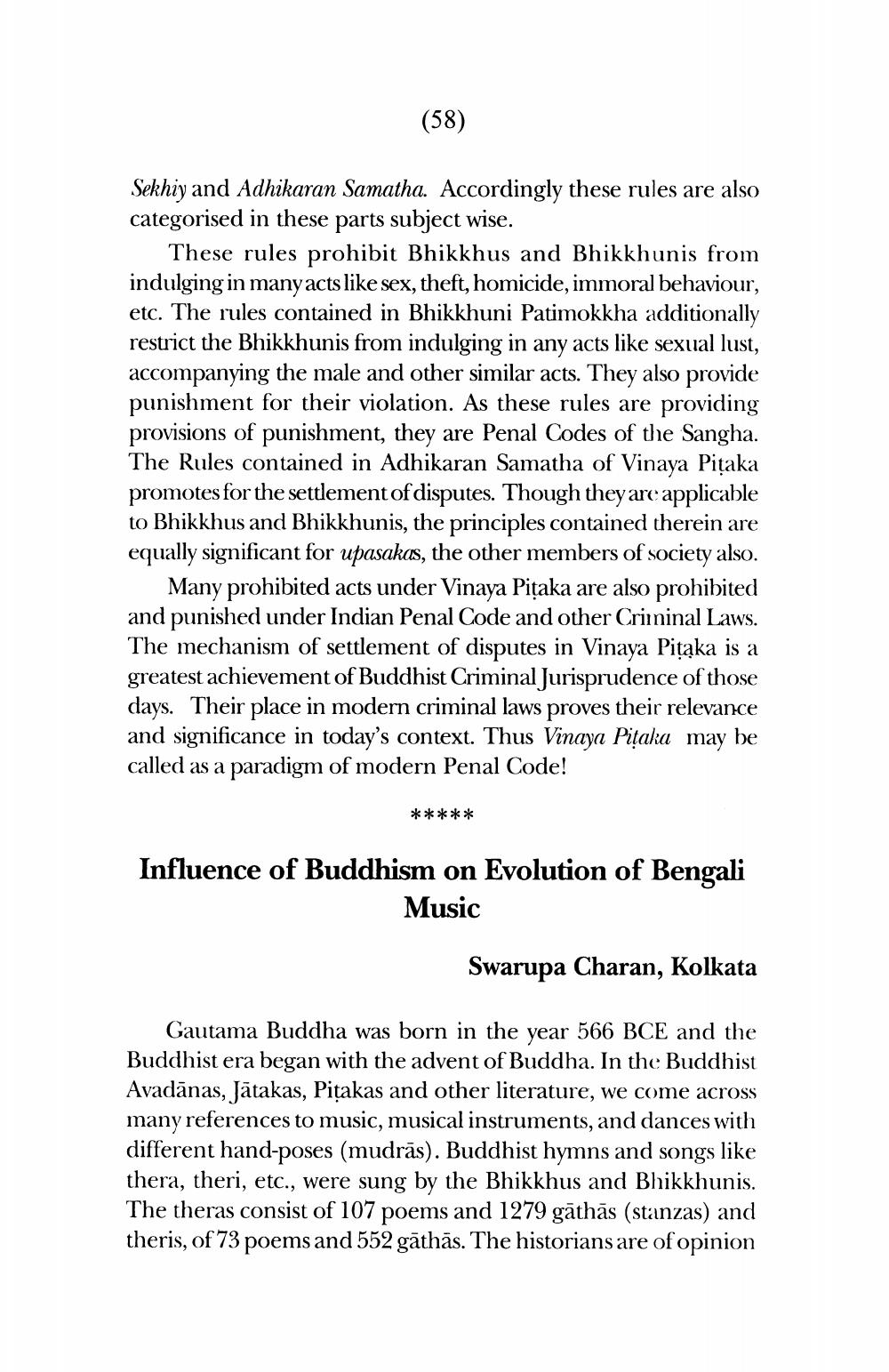________________
(58)
Sekhiy and Adhikaran Samatha. Accordingly these rules are also categorised in these parts subject wise.
These rules prohibit Bhikkhus and Bhikkhunis from indulging in many acts like sex, theft, homicide, immoral behaviour, etc. The rules contained in Bhikkhuni Patimokkha additionally restrict the Bhikkhunis from indulging in any acts like sexual lust, accompanying the male and other similar acts. They also provide punishment for their violation. As these rules are providing provisions of punishment, they are Penal Codes of the Sangha. The Rules contained in Adhikaran Samatha of Vinaya Pitaka promotes for the settlement of disputes. Though they are applicable to Bhikkhus and Bhikkhunis, the principles contained therein are equally significant for upasakas, the other members of society also.
Many prohibited acts under Vinaya Pitaka are also prohibited and punished under Indian Penal Code and other Criminal Laws. The mechanism of settlement of disputes in Vinaya Pitaka is a greatest achievement of Buddhist Criminal Jurisprudence of those days. Their place in modern criminal laws proves their relevance and significance in today's context. Thus Vinaya Pițaka may be called as a paradigm of modern Penal Code!
*****
Influence of Buddhism on Evolution of Bengali
Music
Swarupa Charan, Kolkata
Gautama Buddha was born in the year 566 BCE and the Buddhist era began with the advent of Buddha. In the Buddhist Avadānas, Jātakas, Pitakas and other literature, we come across many references to music, musical instruments, and dances with different hand-poses (mudrās). Buddhist hymns and songs like thera, theri, etc., were sung by the Bhikkhus and Bhikkhunis. The theras consist of 107 poems and 1279 gāthās (stanzas) and theris, of 73 poems and 552 gāthās. The historians are of opinion




